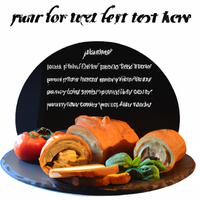
1 serving (70 grams) contains 200 calories, 6.0 grams of protein, 2.0 grams of fat, and 38.0 grams of carbohydrates.

Log this food in SnapCalorie

Nutrition Information
Calories |
675.7 | ||
|---|---|---|---|
% Daily Value* |
|||
| Total Fat | 6.8 g | 8% | |
| Saturated Fat | 1.7 g | 8% | |
| Polyunsaturated Fat | 0 g | ||
| Cholesterol | 0 mg | 0% | |
| Sodium | 1013.5 mg | 44% | |
| Total Carbohydrates | 128.4 g | 46% | |
| Dietary Fiber | 6.8 g | 24% | |
| Sugars | 6.8 g | ||
| protein | 20.3 g | 40% | |
| Vitamin D | 0 mcg | 0% | |
| Calcium | 67.6 mg | 5% | |
| Iron | 6.8 mg | 37% | |
| Potassium | 270.3 mg | 5% | |
* Percent Daily Values are based on a 2,000 calorie diet. Your daily values may be higher or lower depending on your calorie needs.
Food Attributes
Source of Calories
About Dutch crust roll
Dutch Crust Rolls, also popularly known as Tiger Rolls, originate from the Netherlands and are admired for their striking crackled crust pattern. These rolls are typically made from a simple bread dough containing flour, water, yeast, sugar, salt, and sometimes milk, combined with a unique rice flour paste that creates the signature crunchy, mottled top during baking. The result is a soft, fluffy interior paired with a crisp, golden crust. While they provide a source of energy from carbohydrates, Dutch Crust Rolls can vary in nutritional quality depending on preparation; versions made with whole-grain flour offer higher fiber content and improved nutritional benefits. However, they are often low in essential vitamins and proteins, and the white-flour variations may lack significant nutritional depth. Ideal as a sandwich base or enjoyed on their own, these rolls are a delicious indulgence balanced by mindful ingredient choices.



